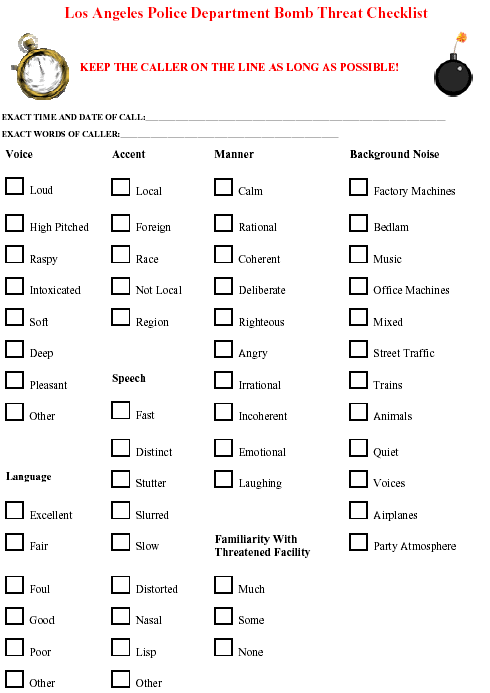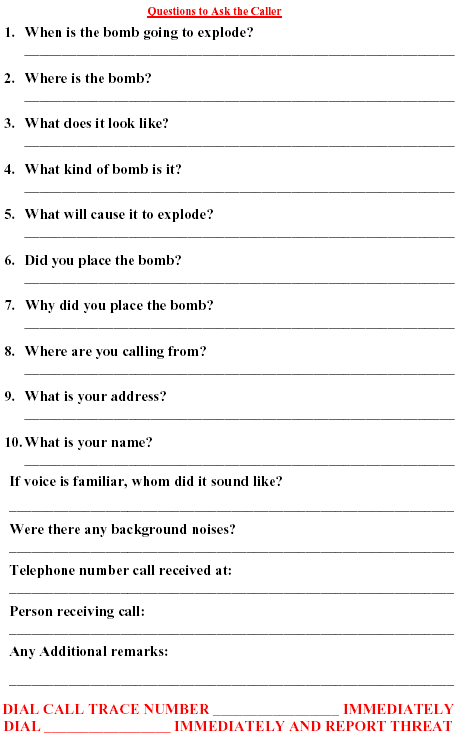Bomb threat checklist
Bomb threats can happen at any time. When a bomb threat is received you need to get as much information as possible, so that a judgment can be made as to how serious the threat might be. The Los Angeles Police Department has put together a good checklist that includes most of the items to be found in other checklists. It can be printed up and kept at hand, preferably in some place where it can actually be found in case of a bomb threat. It is important to remember that bomb threats rarely happen, which means that it is easy for the checklist to slip from mind. Be assured, however, that if someone calls in a bomb threat you would like to have the receptionist find the checklist in a timely manner, and be familiar enough with it to be able to fill it in. It should then be turned over to whoever will be calling the police.
Note that a bomb threat does not necessarily mean there is a bomb, but that factoid does not mean that such threats can be ignored or taken lightly. Nor does it mean there should be panic. Rather, a judgment needs to be made as to how serious the threat is, and what should be done. In some cases individuals may need to make a reasonable judgment without waiting for orders to come down to them from above. As an example, we once worked in an office above the offices of a mid-East government, against which there were relatively frequent bomb threats, none of which, fortunately, ever turned out to be real. After two or three of these incidents, most people chose to simply ignore them. We chose to leave the building, reasoning that the police arrived in a timely manner, and the situation was dealt with in a timely manner, and that it made more sense to reduce our risk to zero.
While the list of questions may seem silly, in many cases the bomber doesn’t want any needless deaths, which is why he is calling. He may well be happy to tell you where the bomb is, when it will go off, why it is there, as well as a lot of other information. If you have a checklist, it is easy to get whatever will be given. If you do not have a checklist at hand, you will likely miss much valuable information that would help the police. Note that in some cases people may be asked to stay and help look for the bomb. This will be because you know what is and is not out of place in your office.
Many central offices support Call Trace, which allows the identification of the last call. This can be a big help to the police, as otherwise all the call records need to be examined to find the right one. If Call Trace is supported, as soon as you hang up on the bomb threat caller you need to dial the Call Trace number (*57 here in Gotham) to mark the call in the phone company records, then call 911, or whatever your local emergency number might be.



